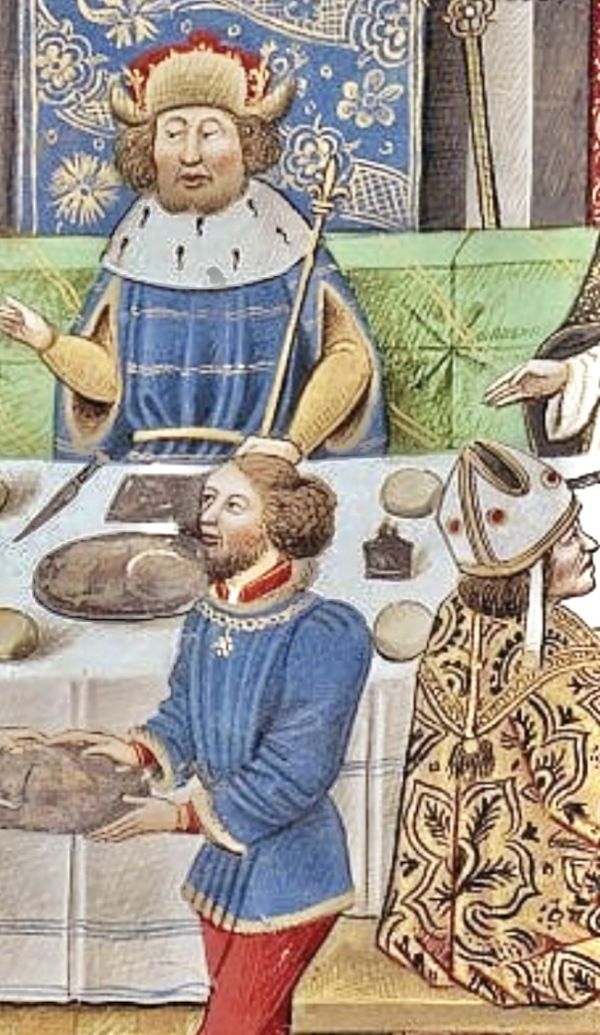Being himself and be different. Neighborhood road
(Lk 14:1.7-14)
The Bible often presents Salvation under the image of a banquet in which God himself participates alongside man.
At the table of a "righteous" one did not sit immediately arriving: you had to stick to a strict label - because of class hierarchies absolutely to be respected.
At the center the persons of regard, then the owner; then all the others, but in order: according to social position, religious function, possessed wealth.
Clumsiness and complacency of vanity, the Lord evaluates them. Smoke volutes, strident especially in the case of the Eucharistic Banquet [v.1: «eating bread»; v.8: «wedding feast»].
And the way in which Jesus speaks at the Table is surprising: He imposes himself, reproaches, suggests.
Finally He begins to blame the one who "invited" him [vv.12-14: «this is not how you have to choose the guests...»]. The effect is lashing.
Yet his is not a lesson in etiquette, nor an exhortation to common sense; much less of opportunism.
During the breaking of the Bread, Christ is not an occasional guest, but the amphitryon, the master of the House [here already worried about the possible failure of his proposal].
The banquet of Lk 14 is precisely setting for the sacred Banquet in which everyone is simple summoned - by vocation (not by merit). In fact, the recurring term is what some texts palely translate with "invited" while the Greek ‘kalèo’ means ‘[I] call': the «called».
Here it is necessary that notables and bystanders who willingly participate to show off immediately repent.
Not only must they stay away from grabbing, but they must also keep away from pathetic rush to occupy strategic positions.
With the image of the Eucharistic Banquet, Lk presents the world of relationships as God imagined it - reign where the Creator has «called» all his sons.
"Norm" between family members is not appropriation, nor some catwalk that inflates (only some) of self-respect.
Broken Bread regulates behavior in the sense of Gratuitousness.
It’s Food of life not degrading, but humanizing: mutual recognition, dialogue, love, shared knowledge...
Food for a non-fierce life - despite the criteria of the ancient world may tend to infiltrate again.
Desire to accumulate and get noticed leads out of the logic of the unconditional invitation.
Arrogant pace of the primactors who sit on the throne to overcome and stand out - to be served first, better and with more abundance than the others - will soon be unmasked and overturned (vv.9-11).
With the drafting of the Gospel of Lk (mid-80’s) we are already in a time where disagreements explode over issues of precedence!
Problem perhaps unchanged, that in fact it’s not resolved by moving back two or three places (vv.8-9) but reversing the scale of nomenklature (vv.10-11).
In short, the assembly of sons helps everyone to converge; it cannot be accomplice of those who transform the world into exteriority, position and business.
Instead, it is Love that conquers the world. It is the unconditional gift that shakes, moves, conquers; it preludes and reflects the Mystery.
In the transformation of one’s own goods into encounter, relationship and life of others, the source of joy, of the completeness of being, springs up: different happiness; anticipation of Resurrection.
Divine life not behind the clouds or at the end of history, but even now. Because the sin’s condition doesn’t cancel the plan of salvation.
In this way, different faces and circumstances become sacraments of Grace, Love so open that no human narrowness could annihilate.
Then being yourself and being different will be path of closeness, able to raise people and dilate-motivate relationships.
[22nd Sunday in O.T. (year C) August 31, 2025]












